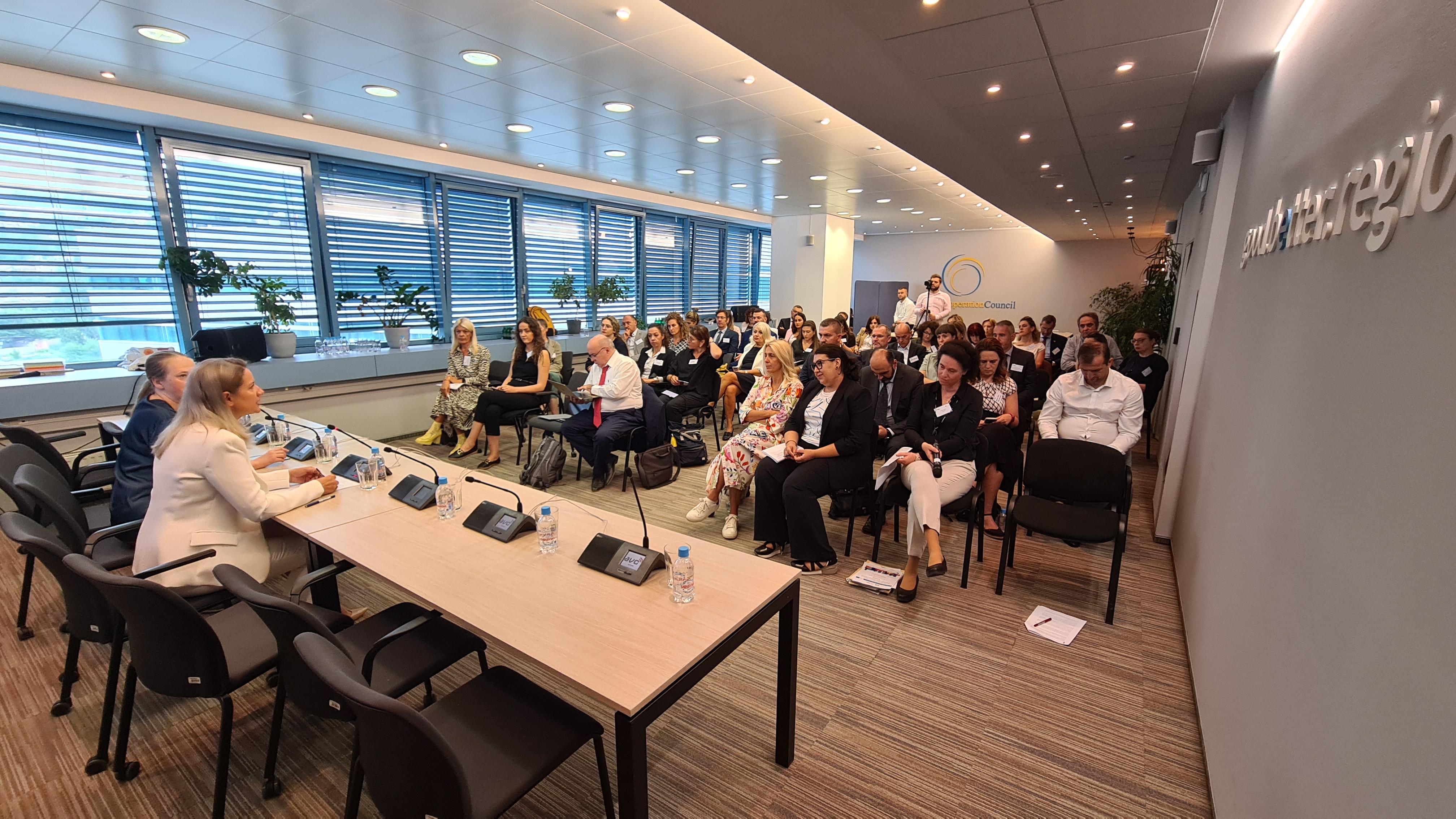Making the most of existing and underused Research Infrastructures in the Western Balkans

The regional workshop “Making the most of existing and underused Research Infrastructures in the Western Balkans” proved a full success.
The Regional Cooperation Council's Sinisa Marcic provided key input about the research and innovation infrastructure mapping. He presented an overview of regional cooperation opportunities with a focus on research infrastructures.
Two ensuing sessions featured nine discussants ranging from social sciences to major regional infrastructures.
Promoting Research Infrastructures for Societal Challenges
The first panel focused on progress in the development of research infrastructures in the Western Balkans.
In the words of Vesna Bengin (BioSense Institute), the region needs to reverse the defragmentation of its research ecosystem to remain competitive. While there are numerous benefits to opening and investing in research infrastructures, the primary focus should be on investment in people and their skills.
Nenad Čelarević passionately argued in favour of the European Social Sciences ERIC. The ESS introduced tangible benefits to the Western Balkans such as access to data that boosted the number of publications and visibility of the region's scholars internationally.
Bio4Campus is one of the most ambitious research and innovation projects in the wider region. Teodora Ilic explained its mission reflects Serbia's Smart Specialisation Strategy priorities.
In the face of climate resilience challenges, Sarajevo puts forward TECH4GREEN facility aiming to bring the city’s digitalisation and smart city initiatives together Jasmin Ademovic explained that the project is a collaborative effort of the City of Sarajevo, Verlab Institute, University of Sarajevo and EU Delegation to Bosnia and Herzegovina.
Dejan Mirakovski showcased examples of university-industry and multidisciplinary cooperation run by the University of Goce Delcev in Stip, North Macedonia. He invited the region’s researchers to join forces through a wider regional framework for better results.
The University of Sarajevo’s Tarik Zaimović announced the forthcoming High-Performance Computing (HPC) System to be in place soon. He encouraged broader collaborations between research, education and private organisations to make the most of the cutting-edge pieces of equipment.
GEANT and the Western Balkans
The second session kicked off with Anastas Mishev’s (Ss. Cyril and Methodius University in Skopje) comprehensive overview of GÉANT's services relevant to individual researchers and research and innovation organisations in the region. He concluded that GEANT offers substantial opportunities which require additional promotion around the region.
Dr. Arjan Xhelaj shared several examples of RASH (Academic Network of Albania) success stories thanks to cooperation through GEANT and the pan-European data network (e-Infrastructure) connecting research and education institutions across Europe.
A part of the InfraBooster programme is now specifically designed to support the further development of research infrastructures in the Western Balkans. Krzysztof Klincewicz offered a useful overview which might be of interest to many research organisations around the region.
Conclusions
The workshop identified numerous resources and opportunities in the Western Balkans. It has been concluded that synergies of funds and initiatives would be greatly appreciated in the region.
If put to use in a smart way, these could translate to solutions for speedier economic growth.
The workshop was jointly organised by Regional Cooperation Council (RCC) and Policy Answers project.
